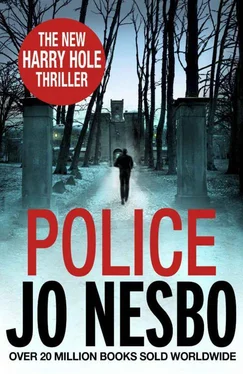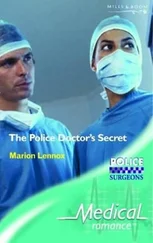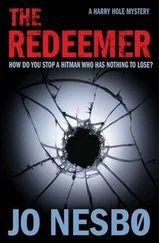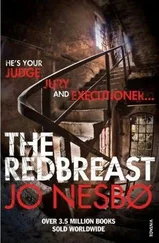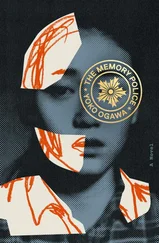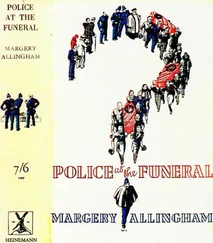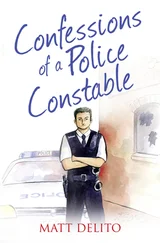Jo Nesbo - Police
Здесь есть возможность читать онлайн «Jo Nesbo - Police» весь текст электронной книги совершенно бесплатно (целиком полную версию без сокращений). В некоторых случаях можно слушать аудио, скачать через торрент в формате fb2 и присутствует краткое содержание. Год выпуска: 2013, Издательство: Random House, Жанр: Полицейский детектив, на английском языке. Описание произведения, (предисловие) а так же отзывы посетителей доступны на портале библиотеки ЛибКат.
- Название:Police
- Автор:
- Издательство:Random House
- Жанр:
- Год:2013
- ISBN:нет данных
- Рейтинг книги:4 / 5. Голосов: 1
-
Избранное:Добавить в избранное
- Отзывы:
-
Ваша оценка:
- 80
- 1
- 2
- 3
- 4
- 5
Police: краткое содержание, описание и аннотация
Предлагаем к чтению аннотацию, описание, краткое содержание или предисловие (зависит от того, что написал сам автор книги «Police»). Если вы не нашли необходимую информацию о книге — напишите в комментариях, мы постараемся отыскать её.
Police — читать онлайн бесплатно полную книгу (весь текст) целиком
Ниже представлен текст книги, разбитый по страницам. Система сохранения места последней прочитанной страницы, позволяет с удобством читать онлайн бесплатно книгу «Police», без необходимости каждый раз заново искать на чём Вы остановились. Поставьте закладку, и сможете в любой момент перейти на страницу, на которой закончили чтение.
Интервал:
Закладка:
He had done what had to be done. They had done what had to be done. Oleg had driven Harry’s car from the road up to the garage while Rakel packed and tied up the body in bin bags, and Harry had made a makeshift stretcher out of a tarpaulin, rope and two aluminium pipes. After putting the body in the boot Harry had gone down to the road with the keys for the Fiat, and Harry and Oleg each drove a car to Maridalen while Rakel set about cleaning up and removing all the traces.
As they had predicted, there was no one around the Grefsenkollen mountain in the rain and darkness. Nevertheless they had taken one of the narrow paths to be sure they didn’t meet anyone.
The rain had made carrying the body a wearing, slippery business; on the other hand, Harry knew the rain would wash away their tracks and they hoped any telltale signs. They didn’t want anything to suggest that the body had been transported there.
It had taken them more than an hour to find a suitable spot, a place where people wouldn’t stumble across the body straight away, yet where their elkhounds would find the scent before too long. Long enough for the forensic evidence to have been destroyed or at least rendered hard to identify. But too short a time for society to have wasted a great deal of resources on a manhunt. Harry almost had to laugh at himself when he realised the latter was indeed a factor. In the end he was a product of his upbringing as well, a brainwashed, herd-following, bloody Social Democrat who suffered physical pain at the thought of leaving a light on all night or discarding plastic in the countryside.
The priest finished his sermon and a girl — a friend of Oleg’s — sang from the gallery. Dylan’s ‘Boots of Spanish Leather’. Harry’s wish, Rakel’s blessing. The sermon had been more about the importance of working together in a marriage and less about being in God’s sight. And Harry had thought about how they had taken the bin bags off Arnold, placed him in a position that would seem logical for a man who had chosen the forest to fire a bullet through his temple. And Harry knew he would never ask Rakel about it, about why she had held the muzzle close to Arnold Folkestad’s right temple before firing instead of doing what nine out of ten people would have done, quickly shot him in the back of the head or the back.
It might of course have been because she had been scared the bullet would go through Folkestad and hit Harry.
But it could also have been because her lightning-fast, almost frighteningly practical brain had managed to think one stage further, about what would have to happen afterwards. There would have to be some camouflage to save them all. A circumlocution of the truth. A suicide. The woman at Harry’s side might have worked out that suicide victims don’t shoot themselves through the back of the head from a range of half a metre. But — given that Arnold Folkestad was right-handed — through the right temple.
What a woman. All the things he knew about her. All the things he didn’t know about her. That was the question he had been obliged to ask himself even after seeing her in action. After spending months with Arnold Folkestad. And more than forty years with himself. How well can you know someone?
The hymn was over and the priest had started on the marriage vows — Will you love and honour her. .? — but he and Rakel ignored the ceremony and still faced each other, and Harry knew he would never let her go, however much he had to lie, however impossible it was to promise you would love a person until their dying day. He hoped the priest would soon shut up so that he could say the yes that was already bubbling joyfully in his chest.
Ståle Aune took the handkerchief from his breast pocket and passed it to his wife.
Harry had just said yes and the echo of his voice still hung beneath the church’s vaulted roof.
‘What?’ Ingrid whispered.
‘You’re crying, love,’ he whispered.
‘No, you’re the one who’s crying.’
‘Am I?’
Ståle Aune checked. He was indeed crying. Not much, but enough for him to detect wet patches on his handkerchief. He didn’t cry proper tears, Aurora would say. It was just thin, invisible water that, without any kind of prior warning, could run down both sides of his nose, although no one around him had considered the situation, film or conversation especially moving. It was just a gasket that blew inside and then the water flowed. He would have liked to have Aurora along with them, but she was taking part in a two-day handball tournament at Nadderud Sports Hall, and had just texted him to say they had won the first match.
Ingrid straightened Ståle’s tie and placed a hand on his shoulder. He put his on hers and knew she was thinking the same thoughts as he was, about their own wedding.
The case was over and he had written a psychological report. In it he had speculated that the weapon Arnold Folkestad had shot himself with was the same one that had been used to murder Gusto Hanssen. And that there were several similarities between Gusto Hanssen and René Kalsnes. Both were very attractive young men who had no scruples about selling sexual favours to men of all ages, and it may have been that Folkestad had a propensity to fall in love with such types. Nor was it improbable that someone with Folkestad’s paranoid schizophrenic symptoms might have murdered Gusto out of jealousy or for a whole string of other reasons based on delusions as a result of a profound psychosis, though this might not necessarily have been noticeable to the outside world. Here Ståle had attached notes from the time Arnold Folkestad had worked in Kripos and come to him complaining about hearing voices. Even though psychologists had long concurred that hearing voices was not always synonymous with schizophrenia, Aune had tended to the view that in Folkestad’s case it was and started preparing a diagnosis that would have finished Folkestad’s career as a detective. But it had never become necessary to send the report as Folkestad decided to resign after telling Aune about his approach towards an unnamed colleague. He had also terminated the treatment and thus disappeared off Aune’s radar. However, it was clear that there had been a couple of events that might have triggered his deterioration. One was the head injuries he had received which had necessitated a longish stay in hospital. There was significant research showing that even light blows to the brain could cause behavioural changes, such as increased aggression and decreased impulse control. The blows, incidentally, bore a likeness to those he dealt to his victims. And the second event was the loss of René Kalsnes, with whom, witnesses’ testimonies suggested, he had been wildly, almost manically, in love. It was no surprise that Folkestad had concluded what he obviously regarded as his mission by taking his own life. The only caveat had to be that he hadn’t left anything in writing or said anything to justify what he had done. It was normal for megalomaniacs to feel a need to be remembered, understood, declared a genius, admired and to find a well-deserved place in history.
The psychological report had been well received. It was the final piece in the puzzle, Mikael Bellman had said.
But Ståle Aune had a suspicion that it was another aspect which had been of paramount importance for the police. With this diagnosis he put an end to what otherwise could have become a bitter and problematic issue: how could one of the force’s own men be behind the massacre? Folkestad was only an ex-policeman, it was true, but nevertheless, what did this say about the profession and what did it say about the culture inside the police force?
Now they could shelve the debate because a psychologist had concluded that Arnold Folkestad had been insane. Insanity has no cause. Insanity just is, a kind of natural disaster that strikes out of the blue, the kind of thing that can happen. And afterwards you have to get on with your life because what else can you do?
Читать дальшеИнтервал:
Закладка:
Похожие книги на «Police»
Представляем Вашему вниманию похожие книги на «Police» списком для выбора. Мы отобрали схожую по названию и смыслу литературу в надежде предоставить читателям больше вариантов отыскать новые, интересные, ещё непрочитанные произведения.
Обсуждение, отзывы о книге «Police» и просто собственные мнения читателей. Оставьте ваши комментарии, напишите, что Вы думаете о произведении, его смысле или главных героях. Укажите что конкретно понравилось, а что нет, и почему Вы так считаете.
